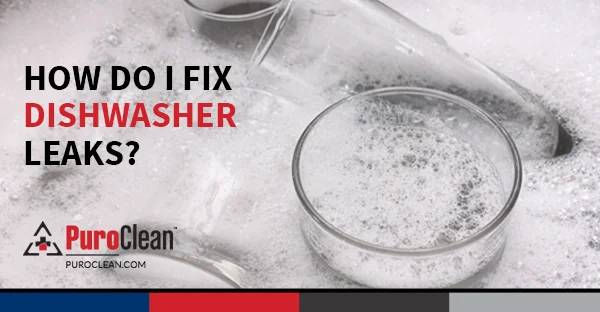Water damage is one of the most insidious threats to the safety and stability of your home. In Troy Hills, NJ, where weather conditions can be unpredictable, homeowners must be vigilant about the potential for water damage. Whether it’s caused by a burst pipe, a leaking roof, or severe flooding, water intrusion can lead to significant and often hidden damage that compromises the structural integrity of your home. Understanding how water damage in Troy Hills, NJ affects your property and taking timely action is crucial to preventing long-term problems.
Immediate Effects of Water Damage
When water enters your home, it can cause immediate damage to any materials it comes into contact with. Wood, drywall, insulation, and flooring are particularly vulnerable to water exposure. In Troy Hills, where homes often have basements and older construction materials, these effects can be exacerbated.
1. Wood Swelling and Warping: Wood is a porous material that absorbs water quickly. When exposed to moisture, wood can swell, warp, and eventually rot. This is particularly concerning for wooden structural components such as beams, joists, and floorboards. Over time, the swelling and warping can weaken the structural framework of your home, leading to sagging floors, misaligned doors and windows, and in severe cases, partial collapse.
2. Drywall Deterioration: Drywall is another common building material that is highly susceptible to water damage. When drywall becomes saturated, it loses its strength and can crumble or develop mold. This not only affects the aesthetic appeal of your home but also its structural integrity, especially if the drywall is supporting other components or separating different rooms.
3. Flooring Damage: Water can cause a variety of issues with different types of flooring. Hardwood floors may buckle or cup as they absorb moisture, while carpets can become breeding grounds for mold and mildew. Even tile flooring can suffer if water seeps underneath, loosening the adhesive and causing tiles to crack or shift.
Long-Term Structural Damage
While the immediate effects of water damage are concerning, the long-term structural damage can be even more severe if the problem is not addressed promptly. The impact of water damage on the structural integrity of your home in Troy Hills can manifest in several ways:
1. Foundation Weakening: One of the most serious consequences of prolonged water exposure is damage to your home’s foundation. Water that seeps into the soil around your foundation can cause the soil to expand and contract, leading to cracks and shifts in the foundation. Over time, this can result in uneven floors, cracked walls, and doors that no longer close properly. In extreme cases, it can compromise the entire stability of the house.
2. Rotting of Wooden Structures: As water continues to penetrate wooden structures, it can lead to rot, a process where the wood fibers break down and lose their structural integrity. Rotted wood is weak and unable to support the weight it was designed for, which can result in the collapse of beams, joists, and other critical components. This is particularly dangerous in areas like basements and attics, where water damage might go unnoticed for longer periods.
3. Mold and Mildew Growth: Mold and mildew are not only health hazards but also indicators of ongoing water damage. Mold thrives in damp environments and can grow on almost any surface, including wood, drywall, and insulation. As mold spreads, it can further weaken these materials, accelerating the process of structural deterioration. In Troy Hills, where humidity levels can be high, mold can become a persistent problem if not properly addressed.

Hidden Water Damage
One of the most dangerous aspects of water damage is that it often goes unnoticed until significant damage has already occurred. Water can seep into areas that are not immediately visible, such as behind walls, under floors, or within the foundation.
1. Wall Cavities: Water that infiltrates wall cavities can remain trapped, leading to hidden mold growth and gradual deterioration of the internal structure. This can weaken the walls’ ability to support the ceiling and upper floors, increasing the risk of collapse.
2. Basements: Basements are particularly prone to water damage due to their location below ground level. Water can enter through cracks in the foundation, improperly sealed windows, or even through the floor. Persistent moisture in the basement can lead to foundation problems, rot, and mold growth, all of which threaten the structural integrity of your home.
Preventing Structural Damage from Water
Preventing water damage and its effects on your home’s structural integrity requires vigilance and prompt action. Homeowners in Troy Hills can take several steps to protect their properties:
1. Regular Inspections: Conduct regular inspections of your home, paying particular attention to areas prone to water damage, such as the roof, basement, and foundation. Look for signs of water intrusion, such as discoloration, musty odors, or visible mold.
2. Prompt Repairs: Address any water damage as soon as it is detected. This includes fixing leaks, replacing damaged materials, and thoroughly drying affected areas to prevent mold growth.
3. Proper Drainage: Ensure that your home has proper drainage systems in place to direct water away from the foundation. This includes maintaining gutters, downspouts, and grading the landscape to prevent water from pooling near the house.
4. Waterproofing: Consider investing in waterproofing solutions for vulnerable areas, such as the basement and foundation. Waterproof coatings, sealants, and sump pumps can help protect these areas from water intrusion.
Conclusion
Water damage in Troy Hills, NJ poses a serious threat to the structural integrity of homes in Troy Hills, NJ. From immediate issues like wood warping and drywall deterioration to long-term concerns such as foundation weakening and mold growth, the effects of water damage can be extensive and costly. By understanding these risks and taking proactive measures to prevent and address water damage, homeowners can protect their properties and ensure the safety and stability of their homes for years to come.



